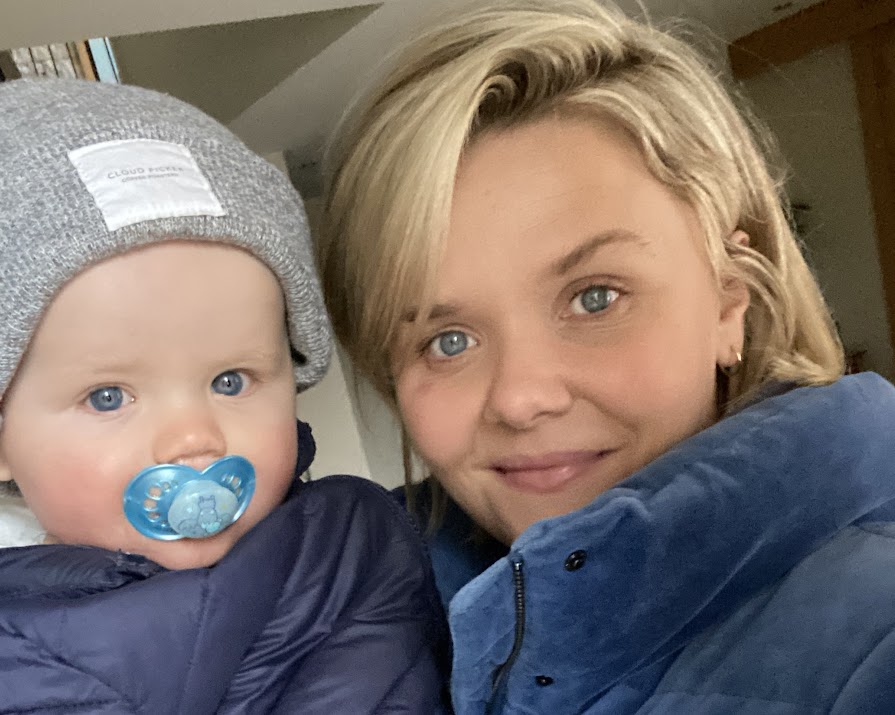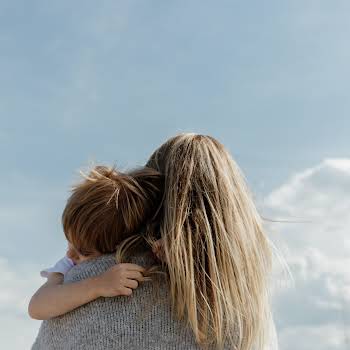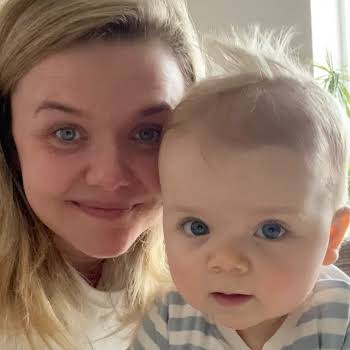
‘I had post-traumatic stress disorder after giving birth — and I’m not alone’
By Dominique McMullan
07th May 2020
07th May 2020
I didn’t want to leave the house; I didn’t want to leave my bedroom. My eyes stung. My stitches stung. Everything stung… Dominique McMullan writes candidly about the trauma she experienced during childbirth and the anxiety and isolation she experienced afterwards
This week is Maternal Mental Health Week. This week is important. As many as one in five women develop a mental health problem during or after pregnancy. Maternal suicide is the leading cause of death during the first year after pregnancy (2019 MBRRACE-UK report).
This time last year my son was two weeks old. I remember lying in bed scrolling through the hashtag, with this little bird asleep beside me. I remember crying silently but so heavily that the bed shook as I read the messages posted from women around the world. I was in a fog, but those messages were a light.
Maybe, what I was experiencing was not so abnormal.
I wasn’t naïve. I never expected a bed of roses. But the depth and breadth of the feelings that clattered through me on becoming a mother shook me to the core. Every day I flicked between bliss and terror. Everything was turned up to ten, a little too loud.
Simultaneously, everything shrunk. I didn’t want to leave the house; I didn’t want to leave my bedroom. My eyes stung. My stitches stung. Everything stung. The world was raw and painful, like a graze that needed to be cleaned. Often, it was just too much.
His birth crashed into us. There was a point, just for a second or two, during which I wasn’t sure we were both going to live
I later found out I had post-traumatic stress disorder, a common disorder to come out of birth. A year later, I am still processing the experience. It was difficult. His birth crashed into us. There was a point, just for a second or two, during which I wasn’t sure we were both going to live.
I struggled with that in the aftermath. I couldn’t sleep for months. Anyone with a newborn knows that sleep is at a premium, but in the small windows I was granted, nothing came.
When sleep did come, I would wake up shouting from terrors that involved being back in the hospital, about to give birth again. My hips would ache at night, as the bones that had been pulled apart, came back together.
For months I could feel the impact of that day ricocheting around my body, and my mind.
Now, a year later, my mind is more peaceful. I am steady. Dare I say, I am happy. A thousand declarations of undying love wouldn’t cover how I feel about my little family.
I am strong and wise like I never felt before. I have clarity and kindness, where before I did not. I manage his little life, his smiles and his tears. And I could not be more grateful for everything that I have learned.
We were lucky in that a truly supportive network surrounded us on all sides. Ranks closed in and we were protected and nourished for that first year; that year in which so many other mothers can see no hope.
My experience is not unusual. Last year, when I wrote about how hard I found the transition to motherhood, I received hundreds of messages from women who felt the same way. I still receive those messages. What do they teach me? That it’s time to start talking, to start really talking.
For a long time women have been expected to quietly accept their suffering. We are taught from a young age not to moan; not to talk about the pain we might experience. Men don’t want to hear about that. And neither do women for that matter. Mothers, even more so, are expected to stand quietly in the background, happily carrying the load.
We need to talk about the relentlessness, the brutality, the animalistic nature of it all. We need to stop patronising new mothers, by thinking that the truth will put them off
But this needs to stop. We need to talk about the things that make us uncomfortable and squeamish. We need to talk about the relentlessness, the brutality, the animalistic nature of it all. We need to stop patronising new mothers, by thinking that the truth will put them off.
We need to talk about loss of identity, the isolation. We need to talk about the things that make us feel like we’re not good enough. We need to talk about the fear and the rage and the tears and the shouting. We need to talk about those things, without the preface of ‘I love them to the moon and back but…’
We need to shine a light into those really dark places, because there is so much power in vulnerability. And rarely are you alone in your thoughts.
Over the last year I connected with so many mothers. In the privacy of illuminated green and white squares, I heard so much pain. Now, more than ever before, this week matters. Because of Covid-19, new mothers are isolated in a way that is unthinkable.
Please, please reach out to them. Please let them know that they are not alone. Please let them know that they are not bad mothers. They are not their thoughts. Please let them know, that if they can just hang on in, the other side is more beautiful than they could ever imagine.
#MaternalMentalHealthWeek
Read more: ‘My birth was not like my pregnancy. It was complicated, scary and brutal’
Read more: ‘My first week back at work after maternity leave didn’t go exactly as I planned it’
Read more: ‘I was terrified they would take my children away if I admitted I was struggling’























